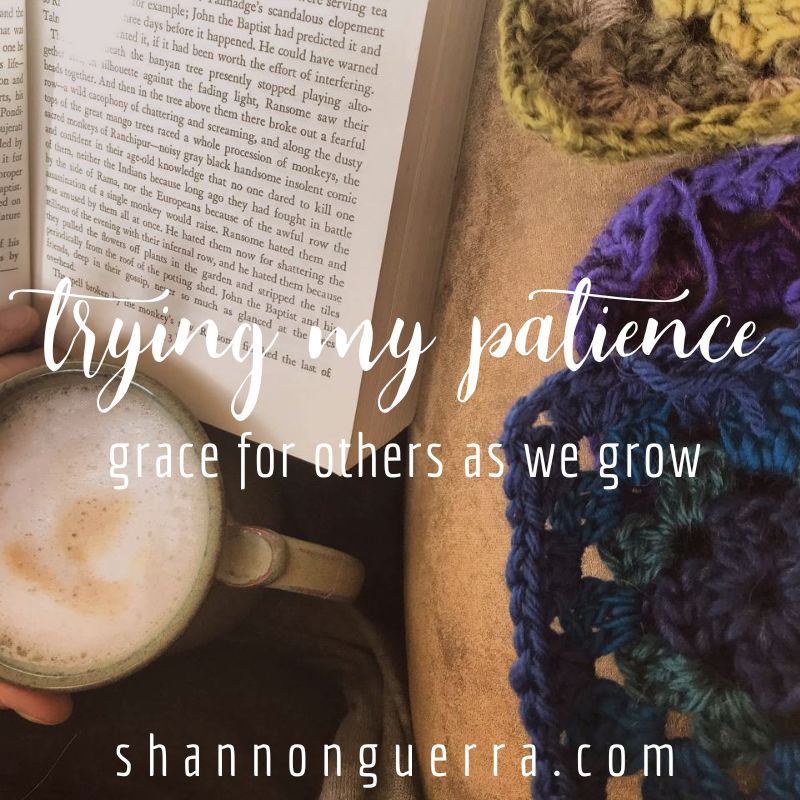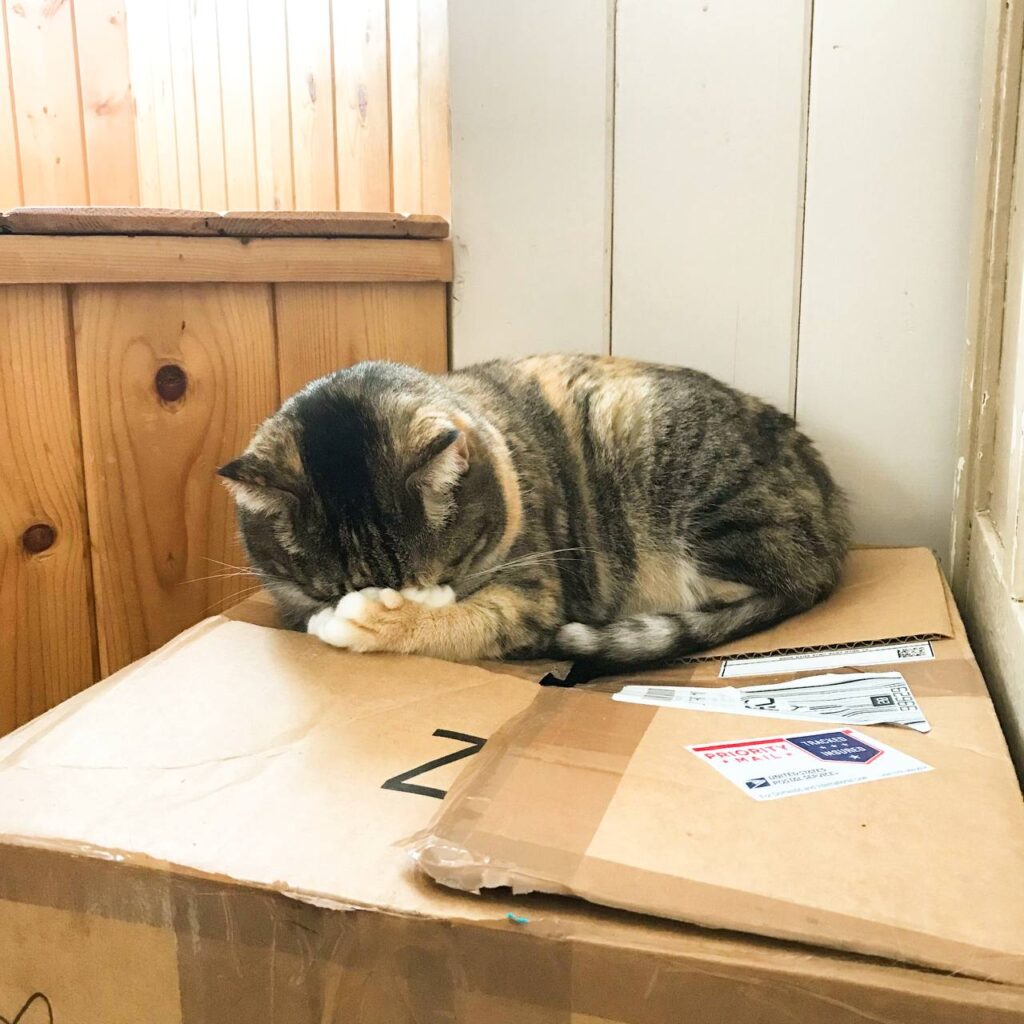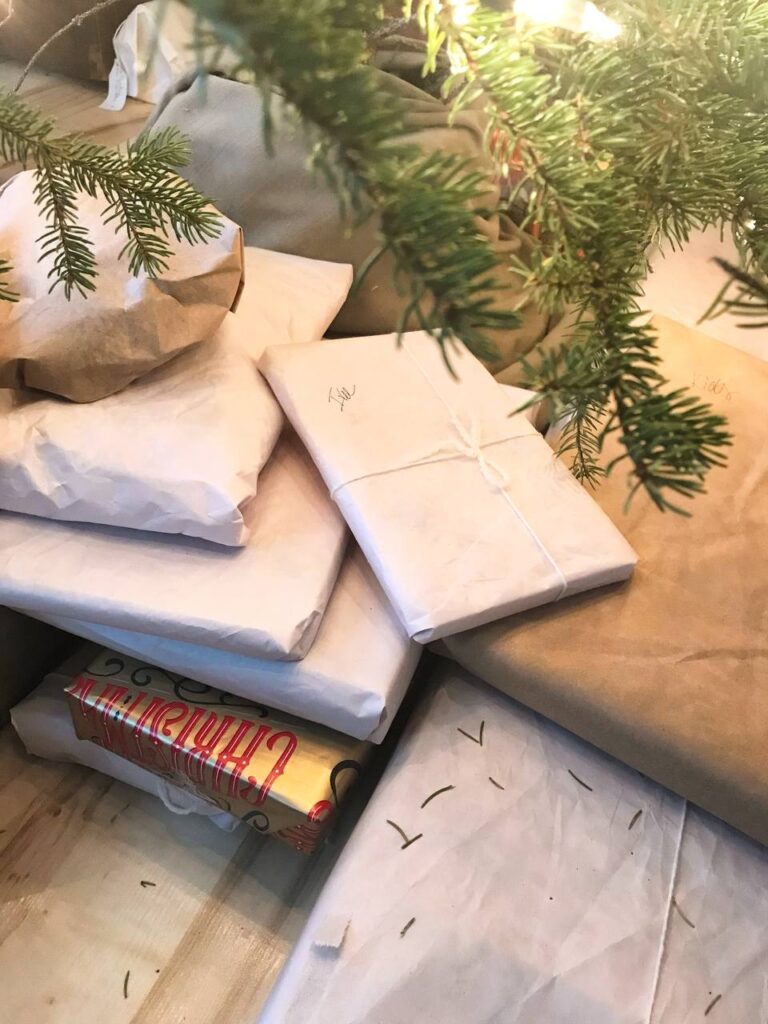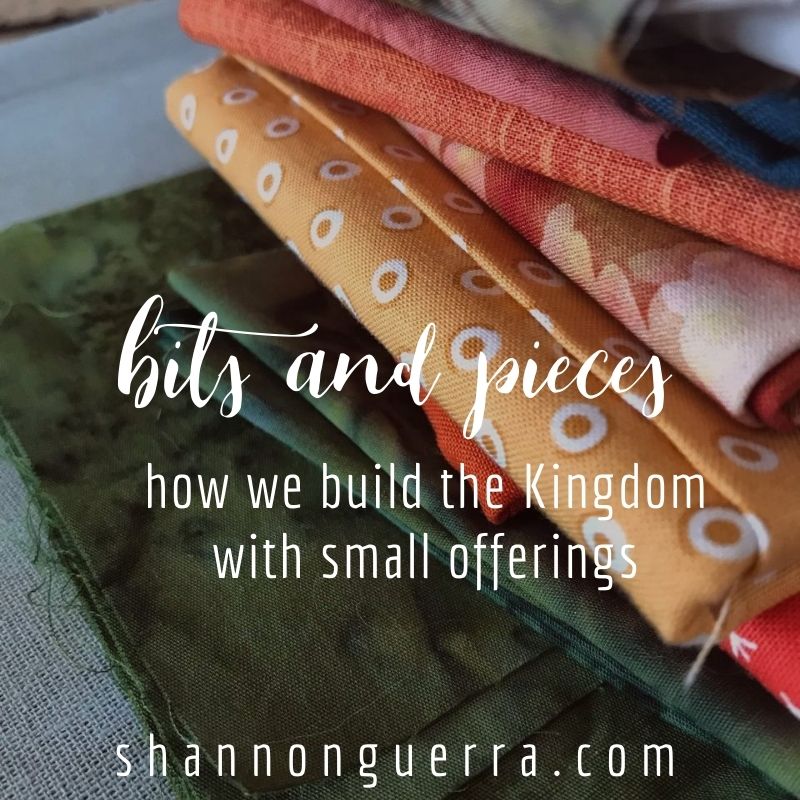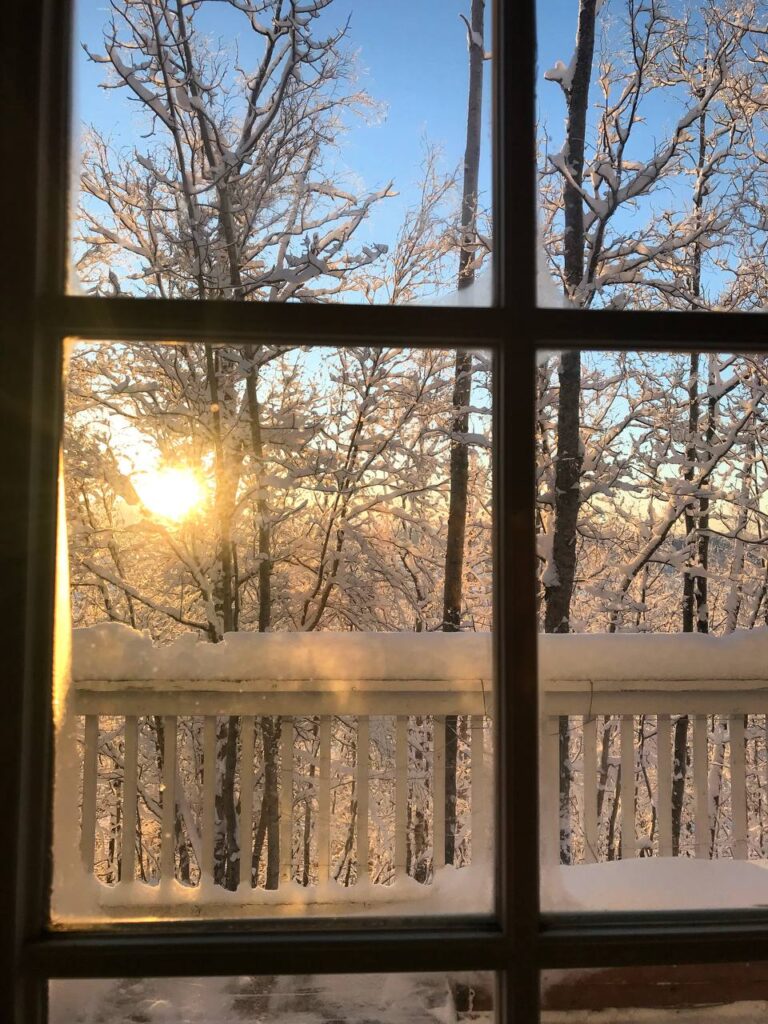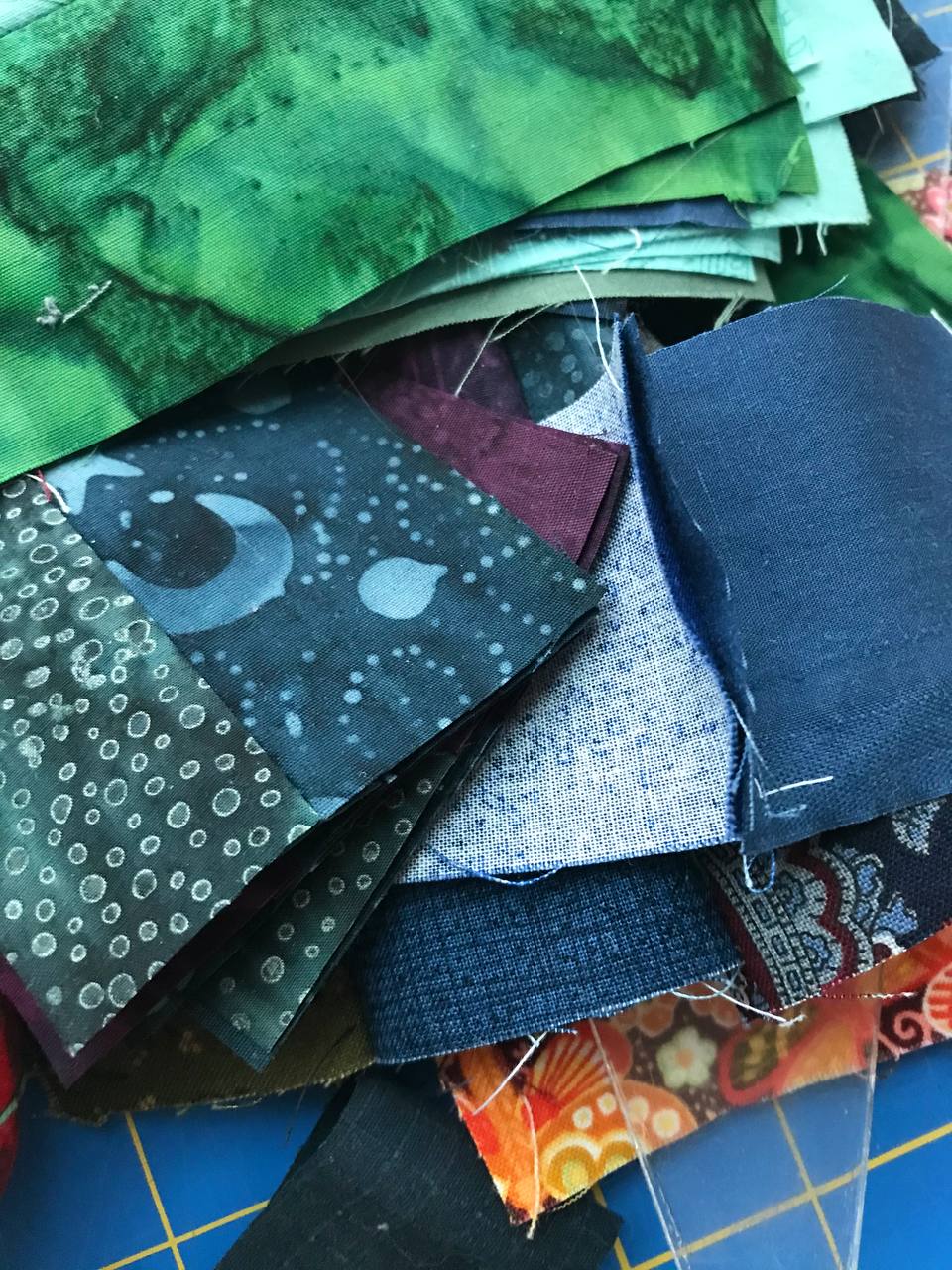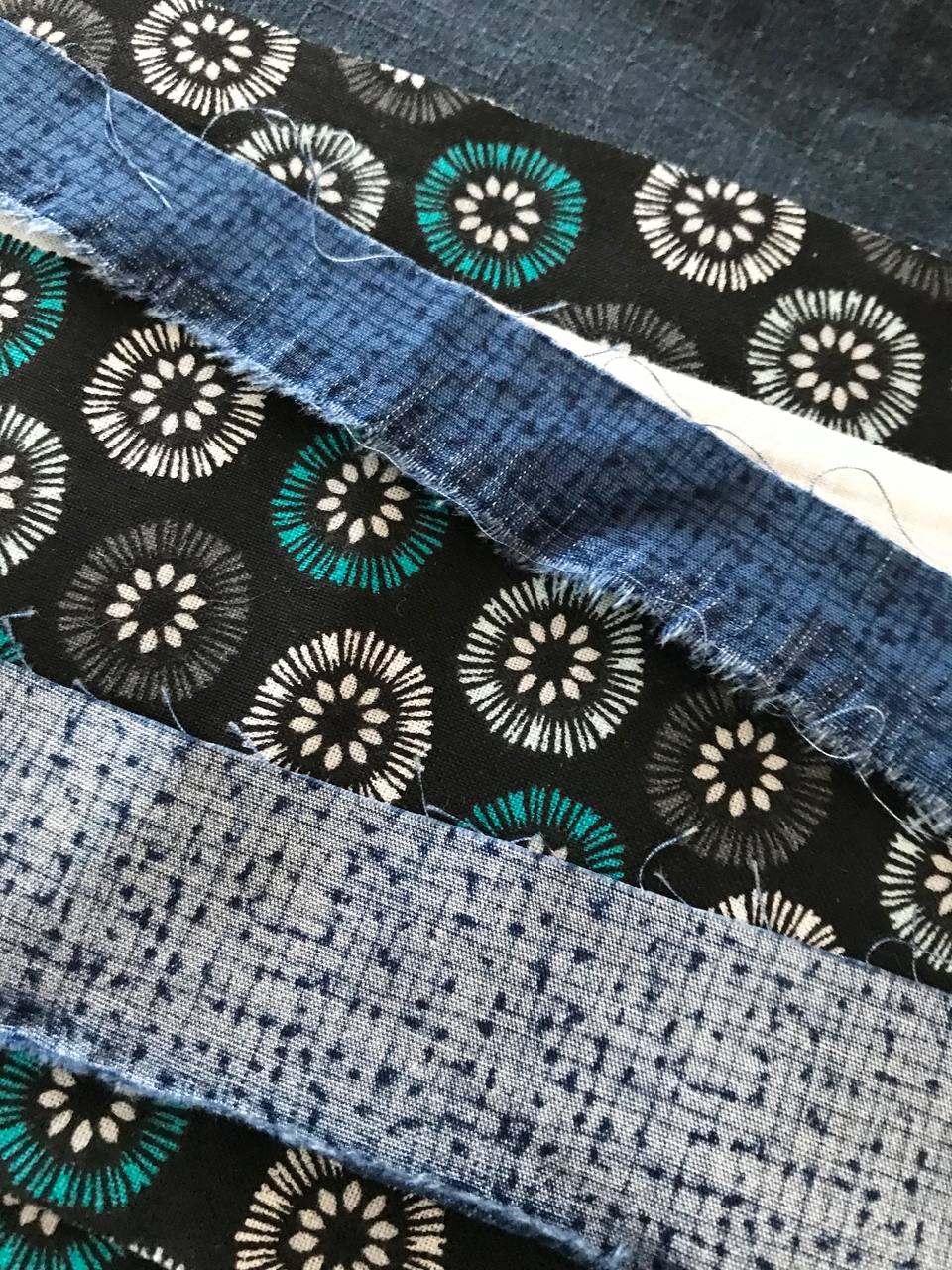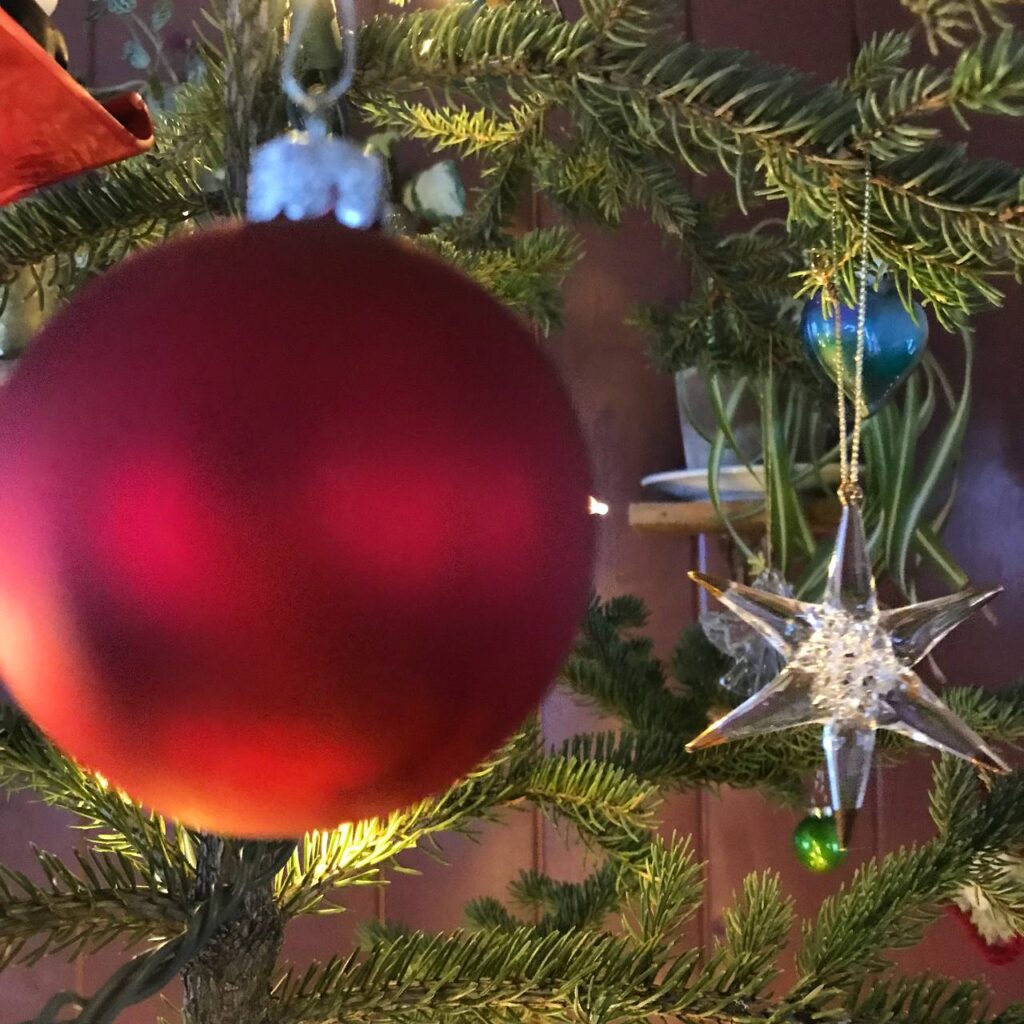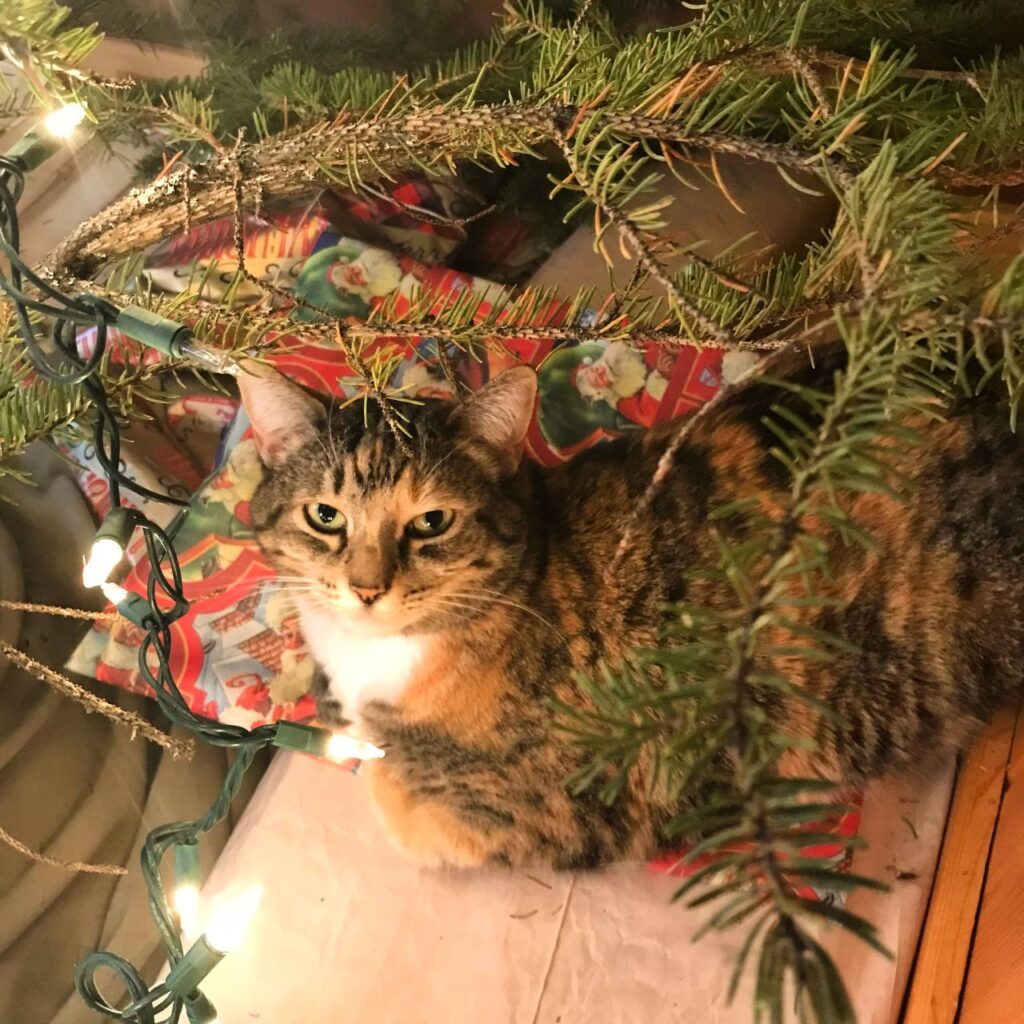Welp, I did it: I met my goal and read fifty-two books last year. A lot of them were good, but these are the ones that made the cut for this list – these ones, I would recommend to a stranger or acquaintance who happened to look particularly bookish.
(Actually, I don’t really know what makes someone look particularly bookish. But if they reference Lord of the Rings in casual conversation, that’s definitely a sign.)

These are almost all novels. Not because novels are what I mostly read, but apparently they’re what I mostly like. And that is somehow a new revelation to me, though I can go back to my lists from 2021 and 2022 and see that the scales tip consistently that direction, which surprises me because about two-thirds of what I read is non-fiction. But as I think about it, it’s probably because most of those are books I feel like I need to read for some reason or other, as opposed to what I want to read.
People ask this a lot, so let’s get it out of the way: How many books do you read at a time? I’ve answered it elsewhere but for the record, here’s my method, which I don’t necessarily recommend. You do what works for you.
I read at least ten books at a time. Ten books on my own, that is, not counting books I’m reading with the kids or ones we read aloud as a family. You might think that’s ridiculous, but I like the variety. And it sorta came about naturally as a homeschooling mom years ago when I was trying to keep ahead of a couple of my kids in their curricula. Those were the days of reading twenty or more books at a time, so you can see I’ve trimmed down considerably.
Also, I am a slow reader, so it usually takes me several months to get through each book. I don’t mind this with non-fiction; I think it helps me retain information better. I don’t necessarily recommend this for novels though (especially long ones, especially Dickens) because they need a fair start. I talk about that here.
If I haven’t lost you by now (all of the non-readers fled somewhere around the fourth paragraph), here’s my list of favorite books from 2023. Some of these are fantasy or fantasy-related; some of them include references to magic; some of them deal with mature themes and immoral behavior. This isn’t a list for younger kids or easily offended people looking for sterile content; it’s a list of great books that I liked. I don’t like horror or smut or tons of foul language; therefore none of these books contain those. So there’s your disclaimer.
Alright, here we go:
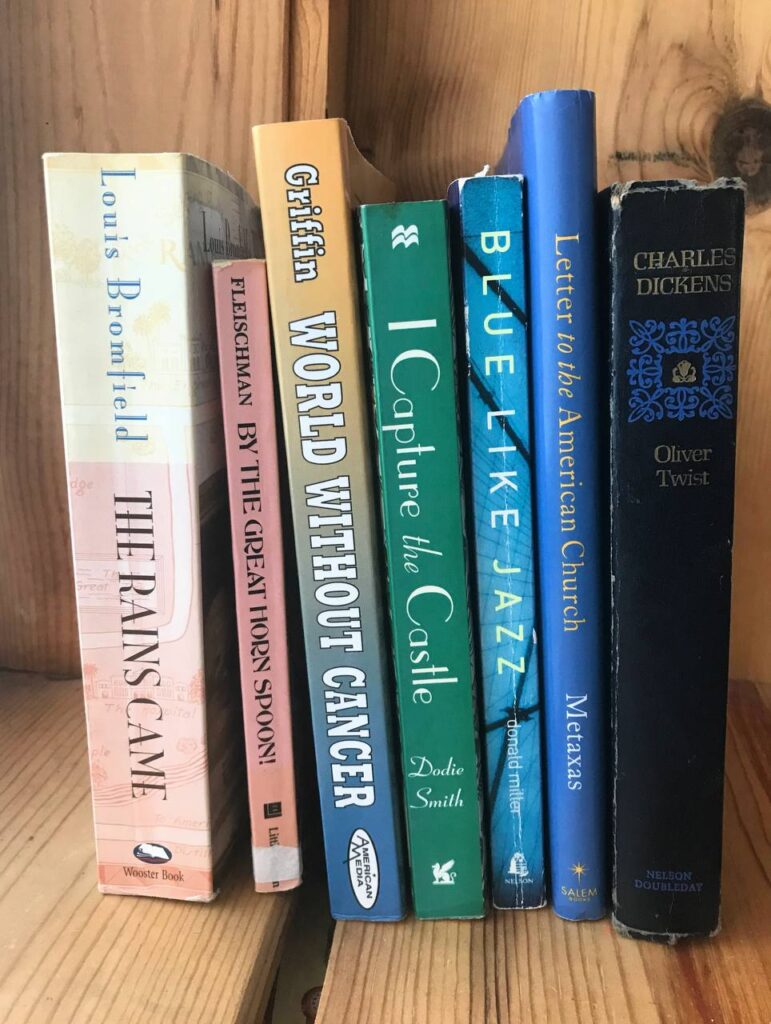
I Capture the Castle by Dodie Smith
This book is a great example of “Don’t judge a book by its movie.” I almost rejected it right off because I had already seen the movie, but grabbed it anyway because someone somewhere highly recommended it. And I’m so glad I did. If you’re familiar with the concept of hygge, this book is it: Cozy, introspective, beautiful details. It’s about a very poor family who lives in a run-down castle, and their lives (and hearts, and relationships) begin to change when they meet their new landlords, two American brothers.
Am I the only Christian churchgoer in the 21st century who hadn’t already read this book? (Besides my husband, who also read it at my insistence.) Just in case I’m not and you also missed this one, here’s what I loved about it: It’s not like normal Christian non-fiction. It’s not filled with the same principles and analogies we’ve already read in dozens of other books or heard in dozens of other sermons. It’s not formulaic or repetitive. It doesn’t use those stupid block quotes on every other page just to try to get a point across.
(My opinion: If authors need those to get their reader’s attention, they’re not writing in a way that deserves that attention.)
Don Miller says some things that will challenge and possibly offend people who prefer those other Christian books as he shares his story of finding Jesus. But every time he stretches the tent pegs out a little, he comes solidly back to Biblical truth. The book is full of Kingdom principles, not just regurgitated Churchianity, and he made me laugh out loud often, like here:
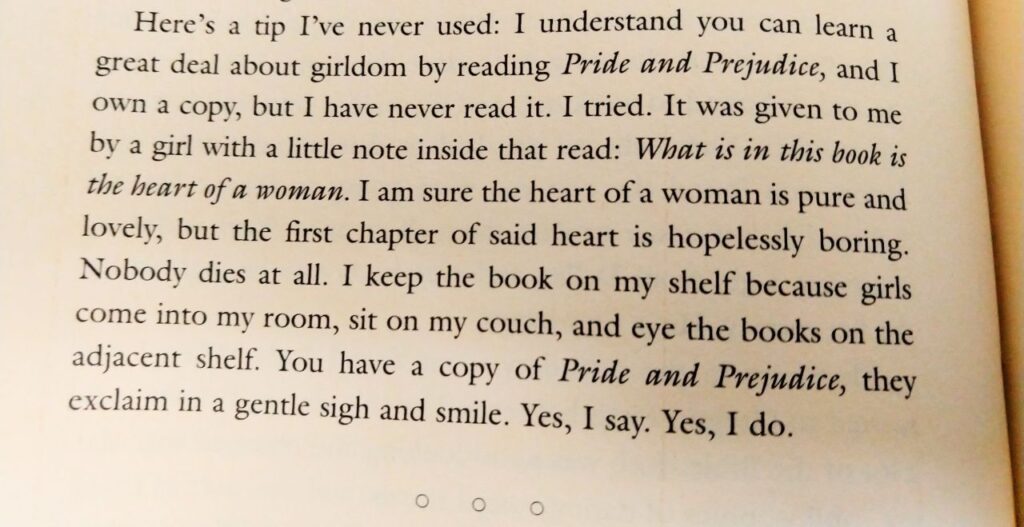
A Tale of Two Cities by Charles Dickens
This was one of the highlights of the year at Gaining Ground, and I wrote in length about it here and here because it’s one of my all-time faves and I’ve read it a bazillion times. (Okay fine. Five.) But if you don’t have time to read those posts, here’s the TL;DR version:
ONE OF THE BEST BOOKS EVERRRRR, YOU TOTALLY HAVE TO READ IT.
Hope that helps.
Anne of Green Gables by L.M. Montgomery
Also one of the favorites at Gaining Ground last year. Don’t be fooled; it’s not just a kid’s book and it’s also not just a girl’s book. We read it aloud as a family years ago, and Vin and our boys loved it (though some of them might not admit it now). This time around, it provoked some deep discussions in our group on childhood beliefs and coping methods, duty versus love, and the contrast of religion versus worshiping in spirit and truth.
I read this book several times as a kid and have read it at least three more times as an adult, but what stood out to me this time was the religious subculture that reveres duty more than a real relationship with God, and how that makes it hard to have real relationships with others and accept them as they are. We grow up in traditions that tend to trump truth because they’re more comfortable than vulnerability. But those attitudes are constantly confronted and exposed by Anne’s childlike, unabashed observations and her genuine admiration for a Creator who made the world such a beautiful place.
World Without Cancer by G. Edward Griffin
“It is an ominous fact that, each year, there are more people making a living from cancer than are dying from it.”
And that’s the crux of the book. Cancer is big business and a big part of that business is fighting natural methods (like vitamin B17, which this book centers on) that really work but can’t be patented and profited from, and replacing those with expensive and dangerous substitutes to perpetuate an addiction to expensive medical intervention.
The scientist is trained to search for complex answers and tends to look with smug amusement upon solutions that are not dependent upon his hard-earned skills.
To bring this a little closer to home, the average M.D. today has spent over ten years of intensive training to learn about health and disease. This educational process continues for as long as he practices his art. The greatest challenge to the medical profession today is cancer. If the solution to the cancer puzzle were to be found in the simple foods we eat (or don’t eat), then what other diseases might be traced to this cause? The implications are explosive. As one doctor put it so aptly, “Most of my medical training has been wasted. I’ve learned the wrong things!” And no one wants to discover that he has learned — or taught — the wrong things.
— G. Edward Griffin, from World Without Cancer
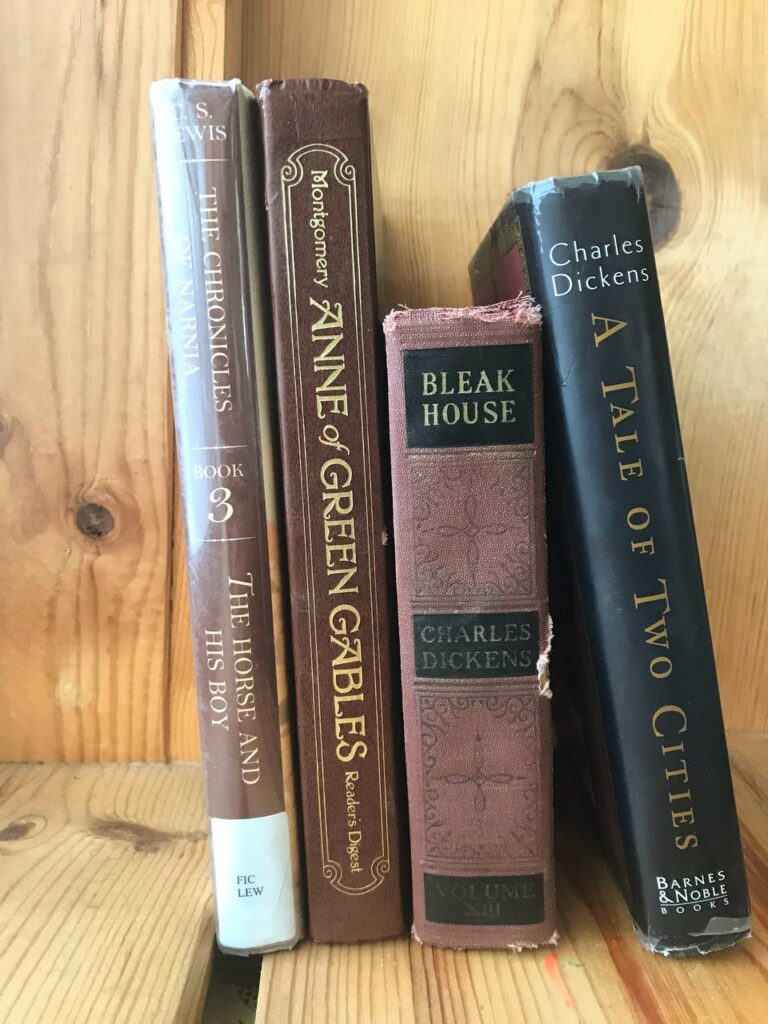
The Rains Came by Louis Bromfield
A cozy (but looong) novel set in 1930’s India about the culture, classes, and relationships toward the end of the British Empire. It’s incredibly well written and easy to read, with fascinating insight into human nature and personalities. And there’s a massive disaster (because…the rains came) so if you like books about survival and crisis, this is a good one.
Oliver Twist by Charles Dickens
If you want an easy way to try Dickens or introduce your kids to him, Oliver Twist is a good start. It’s a reasonable length and, thanks to fewer side characters, the story is easier to follow than many of his other popular books. But it is not a clean, sweet children’s story, so keep in mind the sensitivity of a child you might read it to – there is abuse, brutality, theft, and murder in it. It alludes to prostitution and child trafficking (meaning, there are characters actively involved in those activities but those terms are not actually used). It also is an unrealistic, saccharine look at orphans and adoption – wait, why am I recommending this, anyway? Oh yes, because it’s Dickens, for crying out loud. In spite of all those disclaimers, it’s a fantastic story and totally worth reading.
Bleak House by Charles Dickens
Yes, I finished three books by Dickens in one year (actually four, but The Cricket on the Hearth didn’t make this list). Don’t be impressed though; it took over two years to finish this one because I read it aloud to my daughter, and the book is…eight hundred, nine hundred pages? Crazy long. But so good. Bleak House is the amazing story of a woman’s mysterious birth and her transition from loneliness to family.
His noble earnestness, his fidelity, his gallant shielding of her, his generous conquest of his own wrong and his own pride for her sake, are simply honorable, manly, and true. Nothing less worthy can be seen through the lustre of such qualities in the commonest mechanic, nothing less worthy can be seen in the best-born gentleman. In such a light both aspire alike, both rise alike, both children of the dust shine equally.
— Charles Dickens, Bleak House
Like most (all?) of Dickens’ books, it looks at class, poverty, and human nature; unlike the others, this one switches back and forth from a first person narrative to a third person omniscient narrative, and the effect lends to the mystery rather than creating any jarring disjointedness. Dickens is my fave and this is one of his best.
The Horse and His Boy by C.S. Lewis
This is book #3 in the Narnia series and I’ve probably mentioned or quoted it in a dozen posts already. I can still remember the moment I first read the big reveal in the story: We were camping in our early 20s, and I was reading aloud to Vin in the tent, and the hair on my arms stood up on end as I read about the Lion. I think I actually gasped aloud.
This is a life changing, mind blowing book, and it’s good for all ages. If you have ever felt constrained, like you were meant for a level of freedom you don’t really understand, or you’ve wondered why some things happen the way they do, or you’re in a season of pushing and pushing and you’re not sure if it’s doing any good…this is a great book for you.
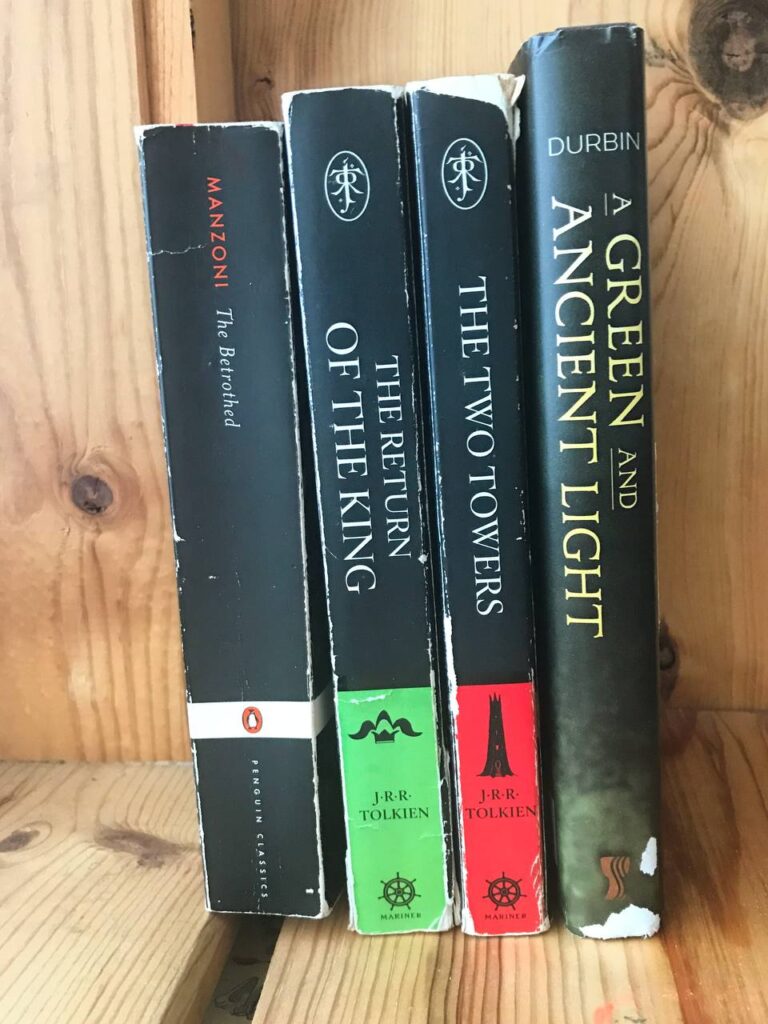
Letter to the American Church by Eric Metaxas
This is a must read: a wake up call to a sleepy church that has fallen more into worshipping their comfort zone more than the Creator. Published in 2022, it speaks specifically to the times we are living in and particularly illustrates why it is important to speak out courageously against wrongdoing and not just protect yourself by silence and “going along to get along.” If people had followed such advice instead of caving to masks and protocols in 2020, a lot of tragedies, trauma, and loss could have been avoided, like this one.
The Betrothed by Alessandro Manzoni
Here’s an Italian historical novel that spans themes like cowardice, righteousness, cruelty, injustice, political power, and redemption. It is long and reads a little like Les Mis or The Hunchback of Notre Dame in its epic-ness, but without the 100-page sidetrack obsessions about Waterloo or flying buttresses. (Sorry, Mr. Hugo.)
I loved two things about this book in particular: It gives incredible insight into human nature and why people do (or don’t do) things, and it portrays beautiful, thorough redemption in a character who seems to be lost beyond hope.
The Two Towers & Return of the King by J.R.R. Tolkien
These are books 2 and 3 of The Lord of the Rings trilogy, which we finished in Gaining Ground during the first part of the year. They are full of battles, friendships, courage, steadfastness, grief, determination, banter, and heroism. You can’t start with these two of course, but since I mentioned The Fellowship of the Ring in last year’s post, these couldn’t be neglected.
(Fun fact: This series has impacted me so much that if you put “Tolkien” in the search bar, no less than a dozen posts show up.)
A Green and Ancient Light by Frederic S. Durbin
Ohhhh, this was a cozy book. A boy goes to live with his grandmother, and he discovers a land (and some friends) that change his life. There’s mystery and fantasy blended here in a quaint small town and a not-so-distant war, and a riddle that you might be able to figure out before the end. Maybe.
By The Great Horn Spoon by Sid Fleischman
I’ve read this a couple times to our kids and it’s a clever, fun story about a boy and a servant who sail around the horn to participate in the Gold Rush, and they have to solve many problems and seemingly impossible situations along the way. It goes fast and gives a good look at the times in a way that’s appropriate for kids.
___
There you go! I hope you find some fun ones to try here. Happy reading. xo
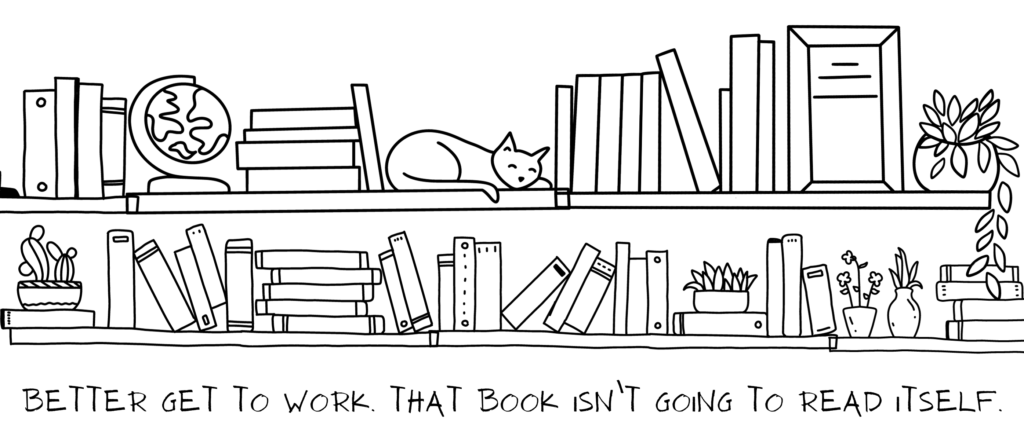
P.S. Want to join us at Gaining Ground? Our discussion group on Telegram is here and I post articles once or twice a month here. Read along with us, and we also have slots open for writing coaching and Brit Lit, which you can read about here.

